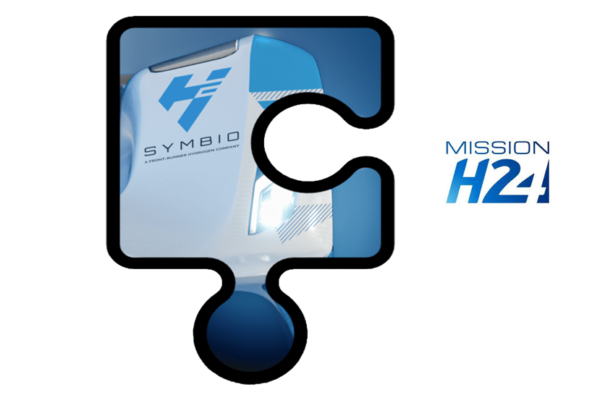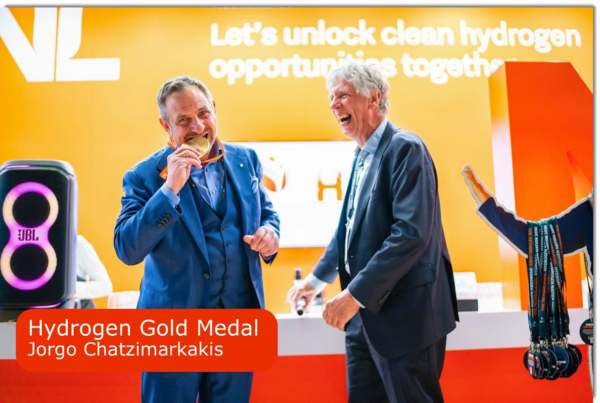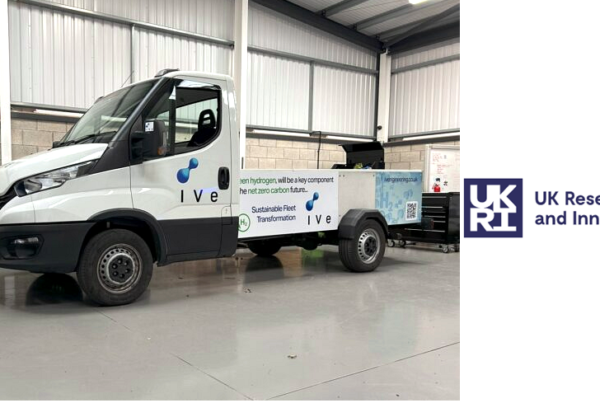
MONTRÉAL – – Propulsion Québec, the electric and intelligent transportation (TEI) cluster, and InnovÉÉ – the Industrial Research Sector Group (RSRI) in electrical energy, today unveil a study on the potential of green hydrogen for heavy and long-distance transport in Quebec.
“ The government’s decarbonization targets are ambitious. Although Propulsion Québec is focused on electrification, it was important to offer our members and the ecosystem an up-to-date inventory of green hydrogen as one of the energy mix solutions to achieve the objective of zero-emission Quebec heavy transport, ” explains Michelle LLambias-Meunier , President and CEO of Propulsion Québec.
“ InnovÉÉ is proud to present a balanced report that highlights the importance of using the right resources in the right places. Green hydrogen is one of the solutions available to us for the energy transition and it is necessary to fully understand how we can make it a judicious tool for the decarbonization of our societies. » says Thierry St Cyr , President and CEO of InnovÉÉ.
The alternative of electrifying heavy and long-distance transport using green hydrogen should not be put in competition with the battery sector, but rather in complementary niches. The current absence of mature technological solutions for heavy and long-distance transport contributes to the relevance of the demonstration of the hydrogen sector; the literary review and discussions with carriers demonstrated that there is potential for the deployment of this technology in Quebec in specific contexts. However, the lack of feedback and visibility remain major issues which slow down the adoption of this solution by carriers.
Lack of trucks, refueling stations and high costs.
The limited quantities of energy available for new projects create uncertainty regarding the granting of an electricity block. In addition, hydrogen trucks are still not widely available on the market. Users must therefore place an order between 2 and 3 years before delivery of the vehicle and the production capacity of these vehicles is very limited. The cost of purchasing a hydrogen truck is higher than that of a diesel or battery electric truck, the current cost of hydrogen is double that of diesel.
Develop pilot projects.
Pilot projects provide effective stepping stones toward technology adoption. The development of hydrogen projects takes a long time, particularly regarding construction permits. It is therefore important to accelerate the permitting processes, whether for the development of refueling stations or the development of hydrogen production plants, so that the entire value chain can move forward together.
Possible business models in Quebec
Class 8 trucks (more than 33 tonnes, load included) can constitute an ideal target, with targeted, consistent and recurring journeys so that the journeys generate predictable demand. This could facilitate the deployment of the first refueling stations on busy highways in Quebec. For operators with activities in isolated sectors, it would be relevant to consider transitional technologies (e.g. retrofit of diesel trucks) in order to mitigate the risk associated with supply. A rental system, making the hydrogen truck financially more accessible to operators with controlled depreciation could be encouraged to promote its adoption. A decentralized model of hydrogen production, with electrolysers directly on the station site with a station every 200 km for example, appears to be more suited to the context of Quebec. In all cases, the network of stations should be developed along structuring road corridors (Quebec/ Windsor type ).
Government
support The implementation of standards by the government will support the transition to more sustainable mobility for heavy and long-distance transport. These standards must be accompanied by an implementation plan, both temporal, geographical and financial.
This study was carried out with the financial support of the Government of Quebec, Ministry of Natural Resources and Forests, Canadian Hydrogen and Fuel Cell Association (CHFCA).
This work was also supported by Mitacs through the Mitacs Business Strategy Internship
Consult the study >> click here
The Quebec electric and intelligent transport cluster mobilizes all players in the sector around concerted projects aimed at positioning Quebec among the leaders in the development and implementation of land transport modes favoring electric and intelligent transport. Created in 2017, Propulsion Québec today has more than 260 members from different sectors and deploys its resources according to seven distinct projects aimed at developing and supporting innovative projects. The cluster benefits from financial support from the Government of Quebec, the Government of Canada , the Metropolitan Community of Montreal (CMM), the City of Quebec, Desjardins Movement, Fasken, Hydro-Québec, Quebecor and the CDPQ.
Read the most up to date Fuel Cell and Hydrogen Industry news at FuelCellsWorks




